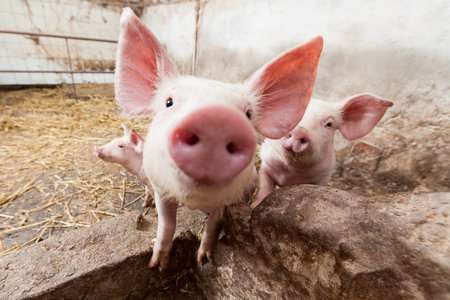A new report explores the trade benefits between Ontario and the U.S. in the Great Lakes region
By Jennifer Jackson
During his campaign, it appeared U.S. President Donald Trump was against the North American Free Trade Agreement (NAFTA).
More recently, Trump has adopted a much subtler take on NAFTA. In a press conference Feb. 14, he mentioned the strong U.S.-Canada relationship and said that he plans on “tweaking” NAFTA agreement details.
With any trade uncertainty, it is important to consider the possible economic impacts. And the Ivey Business School’s Lawrence National Centre for Policy and Management has released a new report, titled “We Make Things Together,” exploring the trade relationship between Ontario and the U.S.’s eight states in the Great Lakes region (GLS8).
The report highlights the importance of free trade with Ontario for these eight states, according to Erin Cheney, agriculture expert and co-author of the study.
“We are using the piece as a reference for U.S. legislators,” she says. “We are showcasing the fact we are an important partner in (their agricultural) exports, just as they are also an important market for us.”
In 2015, the GLS8 region in the United States was responsible for US$17.3 billion worth of two-way trade of food and agricultural products with Canada, according to the report. This trade was directly responsible for 2,461,500 jobs throughout the GLS8 region.
“The interesting part of the study was the level of integration in the agricultural sectors” of the United States and Canada, says Cheney. “Most (people) are well aware of the integration of our automotive sector, for example.”

Cheney examined the partnership between the two countries with Maple Leaf Foods. “There is a very strong demand for the movement of pigs, for example. With a lack of processing capability in Canada, free trade (with the U.S.) has been an integral (factor) for the company.”
Maple Leaf Foods has an integrated supply chain – an example of this is the production cycle of many Maple Leaf products. Products originate in Canada, then are exported to the U.S. for processing, and eventually end up back to Canada, increased in value.
“U.S. farmers make a profitable business of buying duty-free, high-health-status Canadian pigs for finishing and sale to U.S packers,” according to the report. “In turn, many Canadian hog farmers (Manitoba and Ontario being the top producers) have received good, consistent value shipping live hogs to the U.S.”
The risk of a NAFTA breakdown could impact much more than processing companies such as Maple Leaf, according to Cheney.
“Across the board (a breakdown would) impact all of (the industry),” she says. “There would be costs to consumers, processors, packers and producers” with the introduction of tariffs – much like there was with the Country of Origin Labelling (COOL) legislation when U.S. President Obama was in office. “COOL increased costs for no real benefit,” she says.
Should the pork industry, in this case, be concerned? Cheney believes the key word in this situation is “uncertainty.”
“Everyone in the industry has to be prepared for the worst and hope for the best,” she says. “We have a phenomenal agricultural industry with new growth every year. While we do have a lot of ‘eggs in the U.S. basket,’ we have (strength in) other trade partners.
“We (Canada and the U.S.) really are partners – just as the title of the report says, we really do ‘make things together.’”